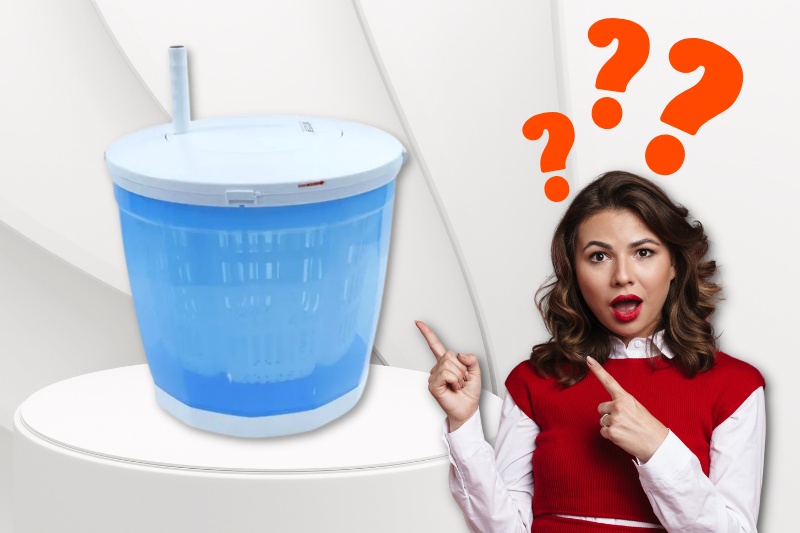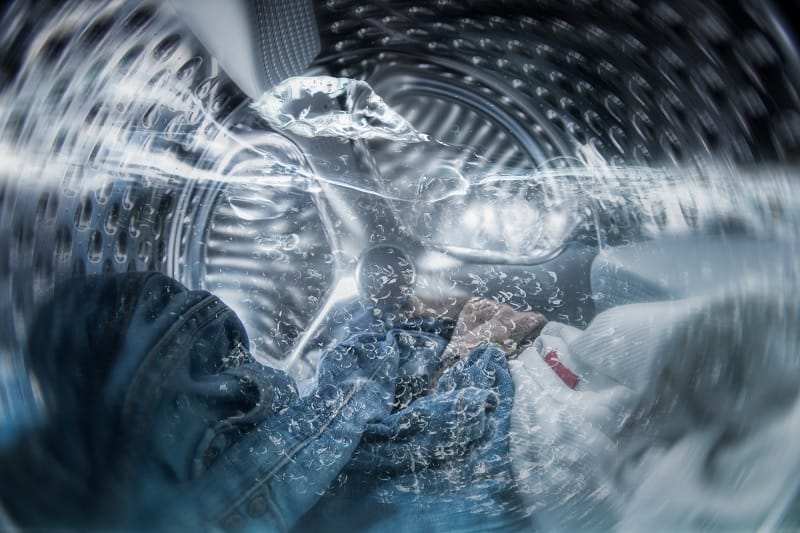A hand crank washing machine uses no electricity at all. Instead, you turn a crank that turns the drum, which cleans your clothes.
Hand crank washing machines look a bit like salad spinners, and work in a similar way.
Below we’re looking at hand cranked washing machines in depth including how to use them, why they were invented, and if these washing machines are the way forward around the home.
How Do You Use a Hand Crank Washing Machine?
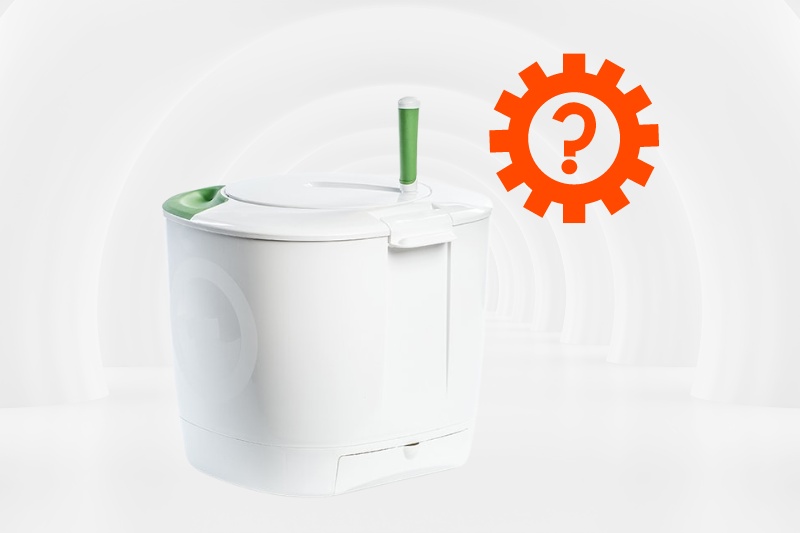
Using a hand cranked washing machine couldn’t be simpler. Just pop your clothes in the machine with your usual detergent and water.
Lock the cover and start cranking. You’ll need to crank the machine for 2-5 minutes. Next, drain the water from the washing machine using the hose and a bucket.
To dry the clothes, you can switch to the drying mode. This usually involves moving the crank handle into a different position, but some hand crank washing machines differ from this.
Then, crank again for a few minutes to remove any excess water from the drum and the clothes. You’ll need to empty the machine of water again.
Your clothes should now be clean. All you need to do is hang them up to dry.
What Are Hand Crank Washing Machines For?
Using a hand cranked washing machine is nice and easy. It doesn’t really take that long, and you get a bit of a workout too. So, why don’t we see these washing machines in many homes?
Well, a lot of hand cranked washing machines are designed for small loads—a few items at most. For this reason, most people don’t use them at home because it would be too time-consuming to wash all your clothes that way.
Where hand crank washing machines really come into their own is in camper vans, caravans and off-grid living. If you don’t have the power or space to waste on a washing machine, these machines are fantastic.
Some hand crank washing machines are nice and small, so they are ideal for a camper van. Granted, you can’t wash many clothes in them at once, but you’ll quickly blast through a pile of washing with one and have impeccable forearms at the end.
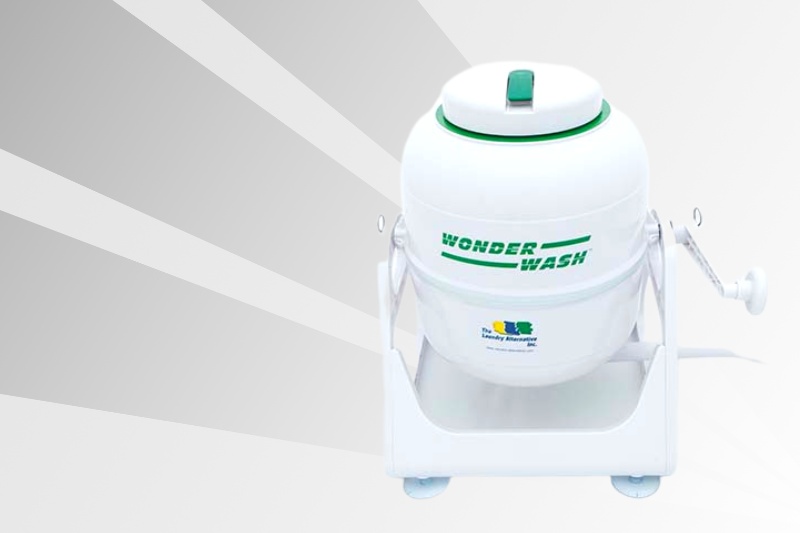
Is a Hand Crank Washing Machine Worth It?
So, hand crank washing machines are mainly used by caravan owners and people living off-grid. But with rising energy costs, could hand cranked washing machines be the way forward in washing your clothes at home?
At the time of writing, each washing machine cycle costs about 41p. This means if you use it 220 times a year, you can expect to pay £89.87 per year.
With costs of everything going up, saving £90 a year may actually make a lot of sense to a lot of us. Of course, the hand crank washing machine itself does cost a bit of money, so the savings won’t be too noticeable straight away.
Plus, you’ll need to factor in the time it is going to take you to wash your clothes from now on. Each load is likely to take around 15 minutes, from loading it to hanging up the washing.
As most hand cranked washing machines are much smaller than a standard machine, you’ll have to do more loads as well.
Other Ways to Save Money Washing Clothes
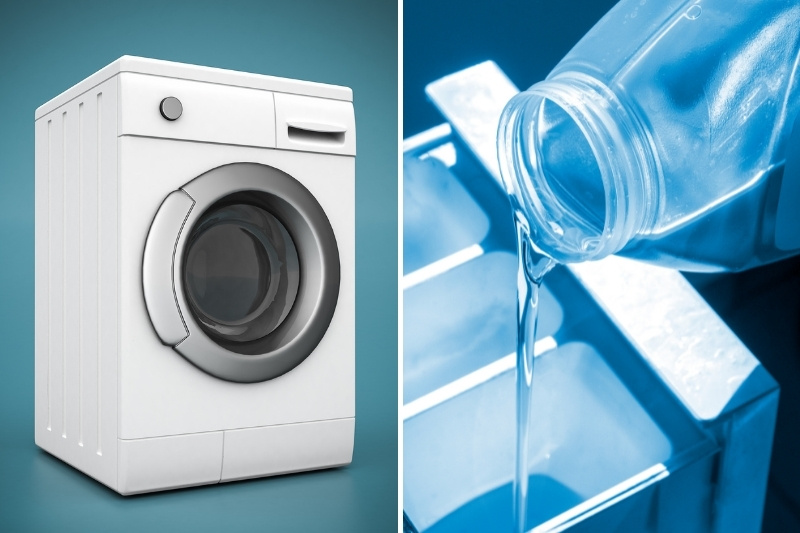
So, perhaps the cost savings of using a hand crank washing machine are appealing, but the additional time you need to do the washing isn’t.
In this case, you might want to invest in a more energy-efficient washing machine. This will reduce the amount of energy you use per load, and you’ll see some savings in your energy bills.
However, bear in mind that the most efficient machines are usually more expensive to buy up front, so it will take a while for the investment to pay off.
As for hand crank washing machines, these are excellent machines used in caravans or camper vans, for example, but they can’t really cope with the amount of washing a family will generate. At least for now.
Perhaps with rising energy costs, larger hand crank washing machines will become available, and we will return to this topic and say you absolutely should have a hand cranked washing machine in your home.
For now, though, take advantage of the space your washing machine has and try to do full loads where possible.
Use good quality detergent that can clean at lower temperatures, and use the energy-saving cycle.
Investing in a more energy-efficient washing machine will help reduce the cost of each load. Check out our guide to the most energy-efficient washing machine in the UK if you want a washing machine with low running costs.

In The Wash is your guide to the best laundry and cleaning products, tips and tricks. Our mission is to solve the UK’s cleaning and laundry dilemmas!
